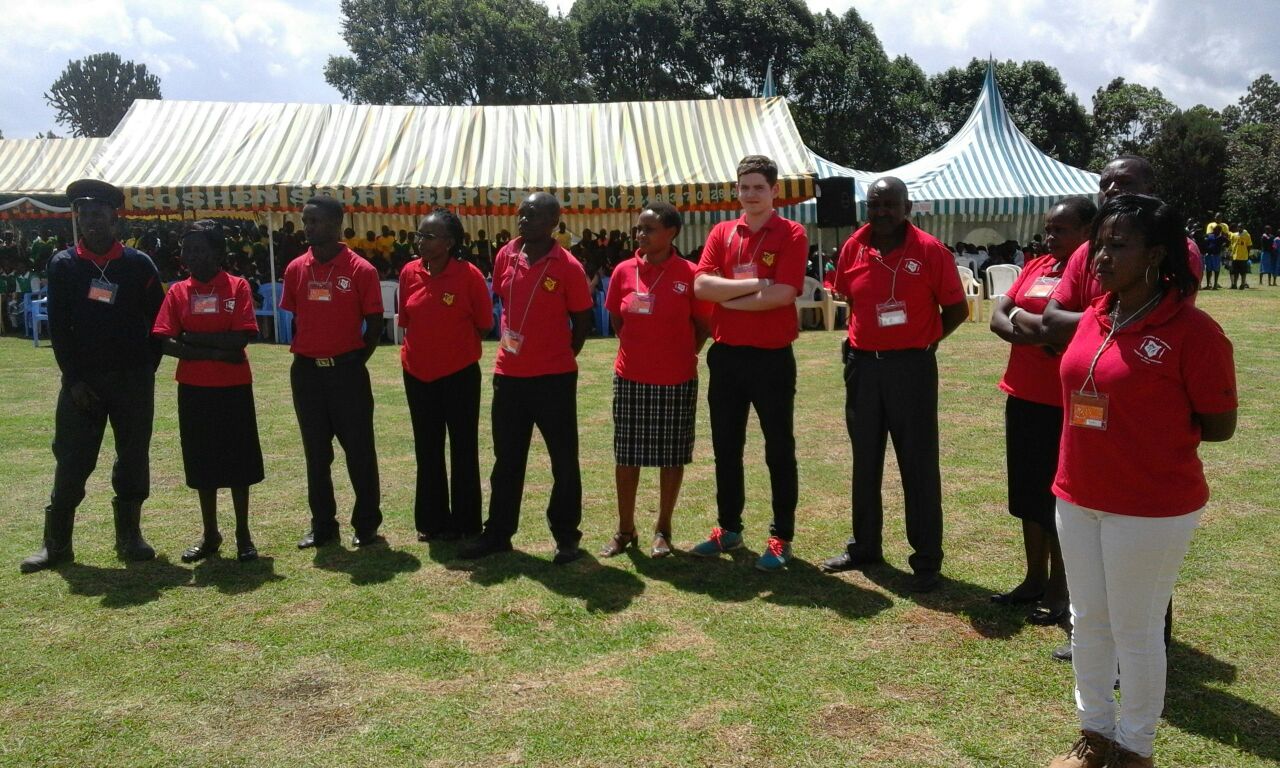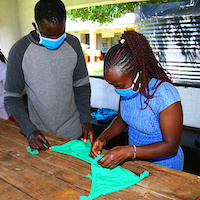My placement in Londiani - blog two by Darragh Treacy
In a series of blogs, student Darragh Treacy is sharing his experiences of working on a placement with Friends of Londiani and his recent trip to support our work in Kenya. In this blog, Darragh talks openly about the impact the experience has had on him.
Blog two - Three weeks into my placement already!
I am now into my third week of placement with Friends of Londiani and have enjoyed every minute so far. I have already seen much of FOL's work in Londiani and surrounding areas which has helped me greatly in understanding the challenges that communities here face on a daily basis. So, how has it been so far compared to how I had imagined it would be when I was sitting at a desk in University College Cork in February? As anyone would, I had various images and concepts running around my mind about things like; how Londiani would look, how the weather would be, how I would settle into a very different environment and how people here would view me as a new ‘Mzungu’ to the village. These were all things which I had thought about or saw as possible obstacles before travelling and honestly, I don’t think any amount of academic reading or research could have accurately predicted how these factors have turned out in reality.
Londiani is a small typical Kenyan village with shops, butchers, hotels and a bank. It’s certainly bigger than what I had envisaged and the roads into it far bumpier than I had expected too! Most people travel on motorbikes to combat this, which was also surprising in a way when you take into account the levels of poverty on show. The weather here is similar to home in a way, great sunshine one minute, torrential rain the next, only in a more drastic manner of change, if it rains in Ireland, it pours here in Kenya.
In terms of settling in, I think before I left Ireland I expected it to be a breeze, however this proved to be slightly more difficult than that. The cultural differences and also the day to day living conditions of people, especially when travelling from Nairobi, were huge shocks to me. All the way to Londiani, you see people sitting on the side of every road and others including children washing themselves in puddles of dirty water. While I expected to see a certain amount of poverty, this was something that caught me off guard and threw me for a couple of days. When a few days had passed, these images were still stuck in my mind but looking at them from a different perspective, they helped me to focus and understand the importance of the work which FOL does to try achieve a better quality of life for these people and to help them to become ‘authors of their own development’.
The locals that I pass everyday on the way to the office are very friendly and welcoming. They always greet you with a great smile and cheerful ‘Jambo’ (hello) or ‘Good Morning’. All of the staff in the office have also been very welcoming which helped a lot in the beginning while I was settling. I didn’t think too much about how this aspect of placement would play out, I more saw it as a small concern and as someone on their maiden journey to Africa, was hopeful that being a ‘Mzungu’ wouldn’t create any barriers to communication. Thankfully, that has most certainly been the case.
And now, to the work itself. FOL have many programmes and projects running with the help of the local communities, which is essential for sustainable changes to be made to peoples’ lives. There are no ‘handouts’, everything is cost shared and work divided so that in a sense, communities are doing this work for themselves with the help of FOL staff. This is one aspect of community development I have been learning about in university that I was happy to see in FOL's work. The idea of teaching people how to help themselves so that they can continue to implement what they’ve learnt long after FOL have completed projects is something that has stuck with me since learning about this concept. Starting out as a naive first year student, I had presumed development work was essentially aid. The whole ‘give a man a fish’ fable springs to mind, and in practice it makes perfect sense.
Community Development
With FOLs community development projects, I can see how each activity that is organised has a specific goal and certainly aims to benefit the people it is concerned with. The ‘Stove Installation’ project is one example of this and it benefits many people in a number of ways; Firstly, FOL train personnel how to install these stoves, this means these people obtain a new skill which they can use to generate income outside of the programme. The households that receive the stoves also benefit in many ways. The new stoves are much safer than the traditional ‘3 Stone’ stoves most commonly used in households. The traditional stoves generate huge volumes of smoke when in use and so are detrimental to the occupants of the house. The new stoves have chimneys and are designed so that smoke created is pulled out of the building. On top of this, the new stoves are far more economical, requiring only 1/3 of the firewood households would use to fuel 3 stone stoves in the past. Even this has further benefits, not only does it save money but also frees up time once spent collecting firewood that can be spent doing other chores or jobs to generate income or keep the household intact.
It certainly has been an interesting few weeks, to see the work of FOL and how many benefits are possible from one community development programme along with the indirect benefits attached! This has been my experience of placement and overseas community development work so far. It’s safe to say I have already learned an awful lot about how organisations work in practice which has made the theory aspect of my learning clear. I’m looking forward to what the next four weeks will bring and continuing to work alongside the FOL staff.
To read Darragh's previous blog click here>>
To read his next blog click here>>

